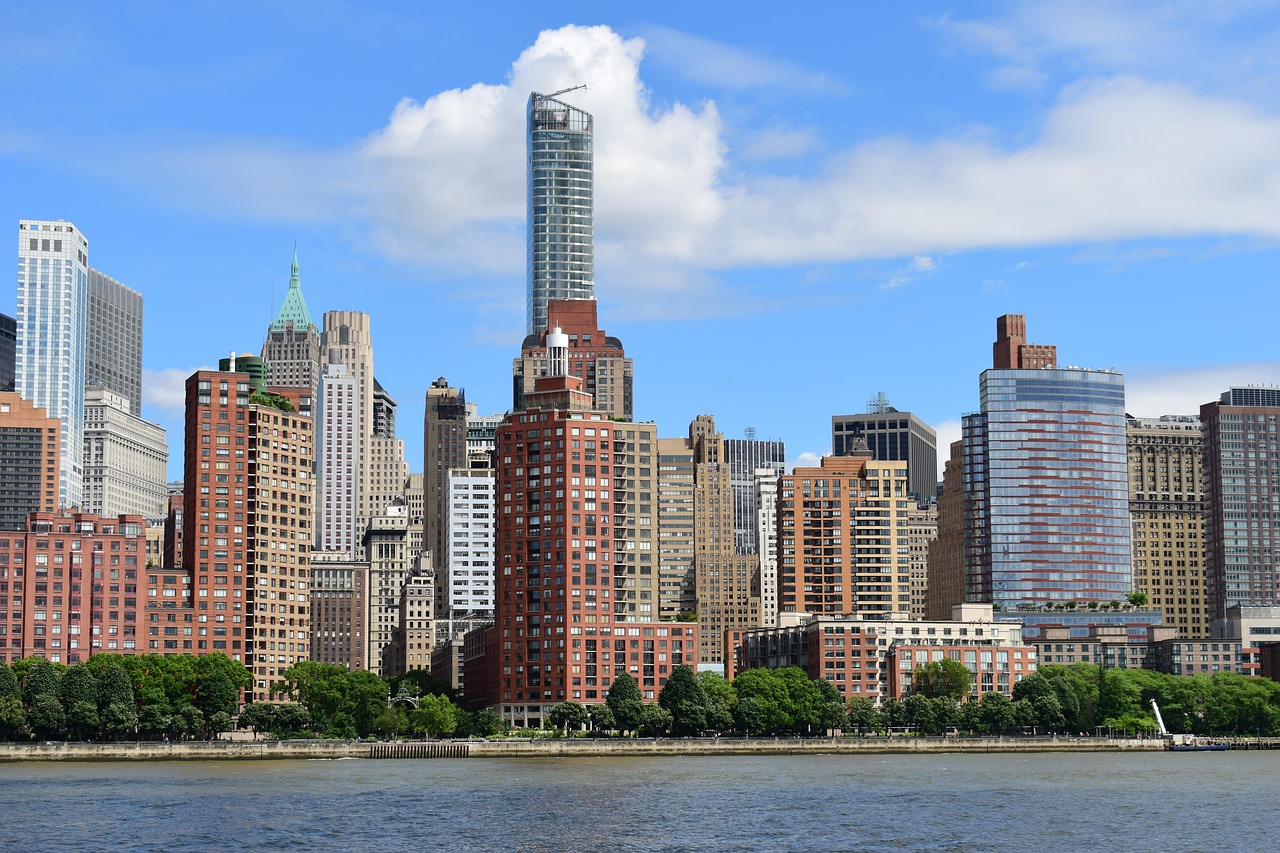- Key Takeaways
- Why Dubai Property?
- Your American Advantage
- The Purchase Blueprint
- Navigating US Tax Obligations
- Beyond the Investment
- Mitigate Your Risks
- Conclusion
- Frequently Asked Questions
Key Takeaways
- Dive into the specifics and nuances of Dubai’s real estate boom – from freehold zones with full ownership rights, to the importance of due diligence on market trends and regulations.
- Benefit from Dubai’s great investment climate – such as its strong projected growth in residential and commercial sectors, wonderful tax laws including no capital gains tax, and competitive mortgage options for American investors.
- Stick to a well-defined and transparent purchase process, use a registered real estate agent, get all required paperwork ready and finalize transactions at official counters such as the Dubai Land Department.
- Be sure to comply with U.S. taxes by properly reporting foreign property income, factoring in tax treaties, and consulting an expert to maximize returns and minimize double taxation risk.
- Discover lifestyle and financial advantages outside of investment such as potential property appreciation, short-term rental income and even UAE residency via property ownership.
- Preemptively address investment risk by evaluating economic conditions of the market, diversifying your portfolio, and following regulatory developments to guide smart, resilient investment choices.
Dxb prop for americancumansky dxb prop for americanbuyers dxb prop for americans dubai property for american buyers dxb property for americans dxbrealestateforamericans dxbrealestateforamericanbuyers
Purchasers have the option to choose among urban apartments, waterfront villas or commercial property in prime locations. The transaction requires documentation, local brokers and defined payment mechanisms.
Americans tend to be very good about checking ownership rules, tax points and investment perks. To assist you in making intelligent decisions, this guide outlines the key process and essential information for first-time buyers.
Why Dubai Property?

What distinguishes Dubai’s property market is the combination of high yield potential, high quality infrastructure, and transparent regulations that welcome overseas investors. For US investors, Dubai’s easy tax system — no property tax on homes. That can result in obvious savings over time.
The city’s stable economic backdrop, with consistent 3-4% GDP growth and low inflation, lowers risk for buyers seeking a safe haven for their funds. Dubai’s high rental yields, typically in the 5-7% range, surpass those of most U.S. Or European cities, meaning investors can generate more rental income.
Purchasing in Dubai’s freehold areas is essential. These areas allow expats freehold property ownership, enhancing investment stability and real estate liquidity. Having the ability to outright own and sell a property at your leisure contributes to Dubai’s allure for international investors.
Dubai’s property market closed 31,920 deals totalling AED 147 billion in Q4 2023, underlining robust and increasing buyer confidence globally. Dubai’s Golden Visa, launched in 2019, offers buyers a path to long-term residency, with owners able to remain for up to ten years. This is an obvious benefit for anyone looking for investment and lifestyle options beyond the U.S.
Dubai’s real estate market is diverse—studio flats, family homes, and luxury villas appeal to many buyers. The city’s position as an international investment hub generates constant demand, which maintains property values. For Americans, investing in Dubai is geographic diversification. This diversifies risk among markets and can insulate against changes in the U.S. Economy.
Feature | Benefit | Potential Challenge |
|---|---|---|
Freehold ownership | Full property rights | Varies by location |
No property tax | Lower ongoing costs | Import duties may apply |
High rental yields | Better income potential | Market fluctuations |
Long-term residency | Up to 10-year stay | Residency tied to investment |
Diverse property options | Entry for all budgets | Research needed for best fit |
Stable economy | Reduced investment risk | Currency exchange risk |
Strong transaction volume | High market confidence | Rapid changes in supply/demand |
Your American Advantage
American investors in Dubai property are able to access a market that is unique in its combination of robust yields, a tax-friendly regime and easy access for foreign purchasers. Dubai’s real estate market has been a consistent favorite of U.S. Purchasers, attracted by no capital gains or property taxes, along with no tax on rental income.
Americans must still comply with U.S. Tax regulations and report foreign holdings. Dubai’s lack of taxation on its end eases net returns and annual planning. It’s prudent to consult with a tax specialist for how to optimally address U.S. Reporting requirements.
Strong rental demand in Dubai acts as a big pull. Places such as Dubai Marina and Downtown Dubai have numerous renters from the international work force which keeps the rental yields there among the best in the city. All over Dubai, rental yields tend to be in the 5% to 7% region based on property type and location.
For instance, smaller flats in desirable locations might yield even more favorable results. American investors savvy about worldwide business trends can leverage this, using what they know about property management, marketing and tenant screening.
Getting financing is easy, too. Local banks are friendly to foreign buyers, even Americans, with mortgage products for non-residents. Generally, you can finance up to 75% of the property’s worth, with interest rates between 3.5-4.5% in 2024.
The lowest down payment is 25%. The table below shows the main financing options:
Option | Max Loan-to-Value | Interest Rate (2024) | Down Payment | Features |
|---|---|---|---|---|
Standard Mortgage | 75% | 3.5% – 4.5% | 25% | Fixed or variable rate, up to 25 yrs |
Islamic Home Finance | 75% | ~4% | 25% | Sharia-compliant, fixed profit share |
Developer Financing | Varies | Varies | 10-20% | Often for off-plan, flexible terms |
The Purchase Blueprint
How American residents can buy property in Dubai with a clean process is essential to understand. Each stage has steps and rules that must be followed. Below is a bullet list that outlines the structured buying process:
- Research and select a property
- Engage a registered real estate agent
- Conduct legal checks and due diligence
- Secure financing or prepare funds
- Sign the Memorandum of Understanding (MOU)
- Pay the initial deposit (usually 10%)
- Apply for a No Objection Certificate (NOC)
- Finalize the sale at the Dubai Land Department (DLD)
- Obtain the title deed
Cooperate with a licensed estate agent who understands the Dubai property market. They assist you in locating properties that match your criteria and financial capacity. Agents help satisfy legal obligations, check the status of the property, and manage negotiations with vendors.
For peace of mind, always verify the agent’s registration with the Dubai Land Department.
Prime your paper before you prime the pen. You will require a passport, income documentation, and occasionally a UAE entry stamp. Non-residents can anticipate a minimum 25 to 50 percent down payment, along with a 4% DLD Transfer Fee and 2% agency fee.
Dubai banks can lend for 50% – 75% mortgages of the property price, depending on the property and your profile.
The MOU (Form F) is the next step. This details the key terms of the property purchase. You pay a 10% deposit, held in escrow by the agent or developer. Once both sides agree, there is the SPA – the final contract.
The last, but not the least, is obtaining a NOC from the developer, which ensures that no dues are pending. You then finalize the purchase at the DLD, where title deed check occurs and the land registry is updated.
Navigating US Tax Obligations

As a US citizen, owning Dubai properties means being subject to American tax laws, even if Dubai has no personal income or capital gains tax. The US taxes citizens on global income, so any profits or rent collected in Dubai needs to be declared on your annual US tax return (Form 1040). This requirement holds true regardless of whether you reside stateside or overseas.
To keep on schedule, employ a checklist. First, maintain clean bookkeeping for any rental income, expenses, or property sales related to your property purchase. Then, determine whether you need to file additional forms such as FBAR (FinCEN 114) or Form 8938. These forms are required if your Dubai assets or associated accounts exceed specific monetary thresholds as per FATCA.
For instance, with more than $10,000 in foreign accounts, FBAR is probably a must. If your foreign assets exceed $50,000 at year-end, Form 8938 kicks in. Rental income from Dubai must be declared in US dollars. Change the funds you receive at the government rate on your payday.
All normal property expenses, such as repairs or management fees, can be declared as expenses. Add these particulars as you file your US return. The US tax year ends December 31, and most returns are due April 15, but if you live outside the US, you might have until June 15.
To reduce double taxation, apply the FTC or FEIE. These can reduce your US tax liability; however, you need to use them by very specific guidelines. The US and UAE do not have a tax treaty, so double-check all requirements.
Consult a tax adviser versed in both US and UAE regulations. This keeps you legit and identifies any tax breaks you could overlook by yourself.
Beyond the Investment

Property ownership in Dubai is much more than an investment; it represents a gateway to a luxurious lifestyle. The city is renowned for its contemporary conveniences, international connections, and emphasis on security. Homebuyers here gain benefits beyond cash, including the potential for lucrative property investment opportunities.
- Access to world-class shopping and dining
- Modern infrastructure and public transport
- Vibrant arts and entertainment scene
- High level of personal safety
- Diverse, multicultural communities
- Year-round sunshine and outdoor events
- Leading schools and healthcare facilities
Dubai’s property market has been thriving post-pandemic, aided by the Golden Visa program. This visa grants property owners a 10-year residency, which is a huge attraction to American residents looking for more than just a vacation home.
Well-liked areas such as Dubai Marina, JVC, Business Bay, Dubai Hills, and JLT have experienced gradual price appreciation. These popular neighborhoods provide a combination of urban living, waterfront views, and parks, making them ideal for both living and renting.
Purchasing a property in Dubai is straightforward. There’s a single land registry fee, around 4% of the sale price. Down payments begin at 25% of the property price, although certain new builds might request full payment in advance, making it accessible for many investors.
After that, there are no annual property taxes, and owners can lease their houses tax-free. This simplified system is particularly attractive to Americans looking to escape convoluted tax regulations.
Short-term rentals present a massive opportunity. Dubai’s tourism sector generates millions annually, and owners can lease out flats or villas to travelers, providing a reliable source of income, especially in sought-after locations.
One of the major advantages is the chance to obtain a residency visa through property ownership. For Americans considering long stays or a move, this feature distinguishes Dubai as an appealing destination in the Middle East.
Mitigate Your Risks
To invest in Dubai property requires a clear vision of risks and their mitigation. This quick checklist touches on important steps to help you mitigate risks and construct a strong plan.
Look at the local housing market’s condition. Look at recent price changes, rental yields and growth in various neighborhoods. Research if the demand is saturated for field you desire. As an example, certain areas of Dubai have numerous new homes, which continuously push down rental yields or resale.
Check reports from trusted sources for factual information. Know where the market moves and what fields will expand most in the next years.
Mix up your property types! Don’t simply visit homes. Consider retail, office, or mixed usage. If one market dips the other might do better. For instance, even if residences in a particular location are vacant, stores in crowded locations can experience consistent demand.
Keep current on trends and regulations. Dubai’s property laws change quick. Read new from official Dubai real estate sites and chat with local agents. New rules may impact your owner rights, or your right to resell.
Do your homework on the developer. Investigate their track record for previous tardiness, legal hassle or abandoned projects. Request to review them and speak with previous purchasers, if possible.
Off-plan projects run the risk of late delivery or even being halted. Know the builder’s record before you pay.
Keep an eye on currency risk. The UAE dirham is pegged to the US dollar but rate movements can still impact your returns. Assume exchange rate movements over time.
Expand your knowledge of costs. On top of the price, you’ll incur maintenance and service fees. These can accumulate, so request a complete cost list and how frequently fees increase.
Think long term. Investing in real estate for a year or more can provide more stable returns with less risk.
Conclusion
Rapid expansion, robust rental yields and transparent regulations define a market that is distinct. Dubai’s laws allow foreign home ownership in lots of locations, too, so that facilitates entry. It’s fast and transparent, with buyers being kept in the loop every step of the way. Tax laws can seem complex initially, but straightforward guidance keeps you grounded in Dubai and stateside. Some good old fashioned wisdom and consistent research keeps you out of harm’s way and safe. Smart buyers let the facts be their guide, consider every option, and rely on local experts with demonstrated expertise. Interested or need assistance? Contact a Dubai property pro for straightforward answers and next steps.
Frequently Asked Questions
Can Americans buy property in Dubai?
Yes, American residents can invest in Dubai properties, as there are no citizenship limitations for most property purchases in designated freehold areas.
Do I need to live in Dubai to own property there?
No, you don’t have to live in Dubai to own property; many foreign investors invest or rent out Dubai properties while overseas.
What are the main benefits for Americans investing in Dubai real estate?
Dubai offers tax-free rental income and robust property rights, making it an attractive destination for foreign investors seeking to navigate the dynamic property market.
How do I pay for a Dubai property from the United States?
You can pay by international bank transfer, and many banks and agents in Dubai are accustomed to assisting American residents with property purchases, helping navigate the currency conversion and payment processes effectively.
Are there property taxes for Americans owning in Dubai?
Dubai doesn’t have annual property taxes either. You might owe US taxes on worldwide income, including rental returns.
What risks should American buyers consider?
Assuming currency fluctuations and market conditions, partner with trusted mortgage brokers and lawyers to minimize hazards.
Will buying property in Dubai affect my U.S. taxes?
Yes, you do need to report foreign property income to the IRS, especially for American residents investing in Dubai properties.



